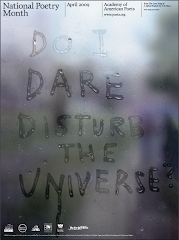Lilian S. Robinson's argument in, "Treason Our Text," was particularly striking to me because the thoughts she has attached to her argument are actually thoughts that I have had about feminist criticism of the canon for a very long time. Robinson argues that feminist criticism serves two very different purposes in terms of canonical analysis. "It can emphasize alternative readings of the tradition, readings that reinterpret women's character, motivations, and actions and that identify and challenge sexist ideology. Or it can concentrate on gaining admission to the canon for literature by women writers" (155). I have heard both types of criticism over the years that I have spent chatting with my high school teachers and some college professors. In terms of my own personal beliefs, I don't think the former stance really helps anything. I am for the latter. What's the point of arguing alternative readings of canonical texts in order to point out the injustices and inequalities that exist? That seems like a passive argument to me. This method of approaching canonical reconstruction is not really allowing the woman's voice to speak.
However, us women who hope to see the canon become more female-friendly need to start considering the works of all females. Instead of constantly fighting for the inherent worth in Kate Chopin and Virginia Woolf's work, I think it is also important for us to stand true behind the works of Zora Neale Hurston and Amy Tan. Looking back at my time spent in high school, I feel as if these women were certainly ignored, and I never once heard of an English teacher bringing these great writers before the eyes and ears of curriculum committees.
Basically, Robinson argues that us women need to decide what we want in terms of redeveloping the canon. Feminist critics are fulfilling the female stereotype of indecision at this point in our history of canonical studies. We need to decide what the "female tradition" means to us. We need to decide which female writers are worth fighting for (including those who may be from different ethnic backgrounds, or those with a different sexual orientation than our own). We also need to decide if we're fighting to have the female voice heard, or just to criticize the worlds that surrounded the formation of canonical texts. "In one sense, the more coherent our sense of the female tradition is, the stronger will be our eventual case. Yet the longer we wait, the more comfortable the women's literature ghetto--separate, apparently autonomous, and far from equal--may begin to feel" (164). So let's decide exactly what it is we're arguing for, ladies!
-Meg R.
Subscribe to:
Post Comments (Atom)













...treason may be the only way.....
ReplyDelete